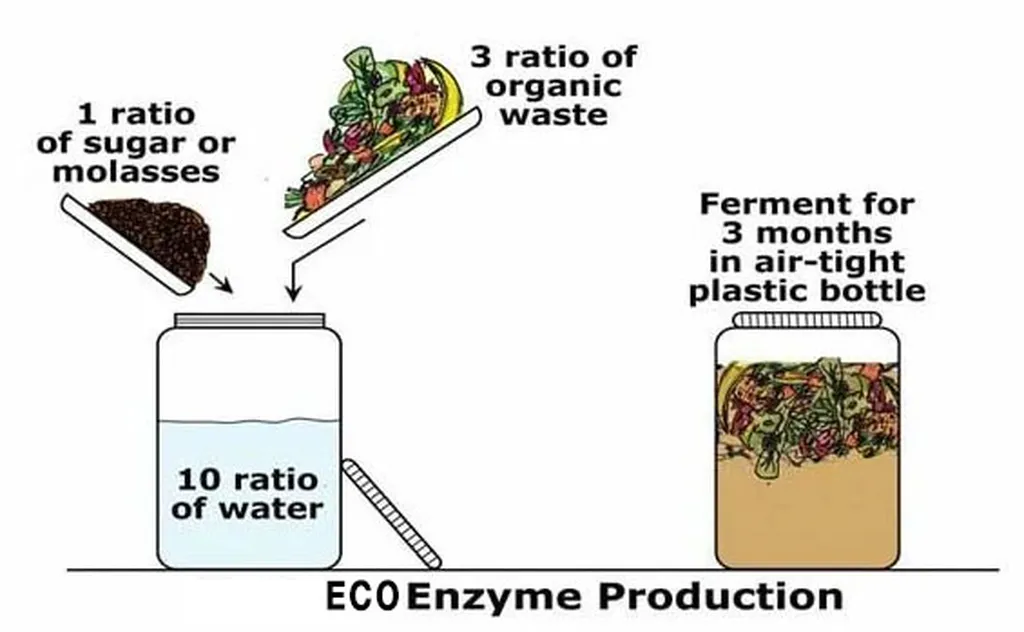In a world grappling with the dual challenges of waste management and sustainable agriculture, a recent study published in *Jurnal Ilmu Pertanian Indonesia* offers a promising solution. Researchers, led by Dita Megasari from the Department of Agrotechnology at Universitas Pembangunan Nasional “Veteran” Jawa Timur, have demonstrated that vegetable waste can be transformed into ecoenzymes with potent insecticidal properties. This innovation could revolutionize pest management in agriculture, reducing reliance on chemical pesticides and promoting eco-friendly practices.
The study focused on creating ecoenzymes through fermentation, using a combination of vegetable waste and various sugars. The vegetable waste included cabbage, lemongrass, and red onion peels, while the sugars were molasses, brown sugar, and granulated sugar. The resulting mixtures were fermented for three months, yielding ecoenzymes with distinct physical characteristics such as an acidic pH (3.1−3.6), dark brown coloration, and a strong sour fragrance.
The insecticidal potential of these ecoenzymes was tested against Crocidolomia pavonana larvae, a common agricultural pest. The results were striking. “The mixture with lemongrass and molasses showed the highest mortality rate of 66.67% and the strongest antifeedant effect,” Megasari explained. This finding underscores the significant impact that variations in waste type and sugar supply can have on the effectiveness of ecoenzymes.
The implications for the agriculture sector are substantial. As the demand for sustainable and organic farming practices grows, ecoenzymes derived from vegetable waste present a viable alternative to chemical pesticides. “This research demonstrates that vegetable waste, often considered a nuisance, can be effectively repurposed into a valuable resource for pest management,” Megasari noted. By reducing the need for synthetic pesticides, ecoenzymes can help lower production costs, minimize environmental impact, and promote healthier ecosystems.
The study’s findings open up new avenues for research and development in the field of sustainable agriculture. Future studies could explore the efficacy of ecoenzymes against a broader range of pests and their potential for large-scale production. Additionally, the optimization of fermentation processes and the identification of other waste materials that could be used in ecoenzyme production are areas ripe for further investigation.
In conclusion, this research highlights the untapped potential of vegetable waste in creating eco-friendly solutions for pest management. As the agriculture sector continues to seek sustainable alternatives, ecoenzymes derived from vegetable waste could play a pivotal role in shaping the future of farming practices. The work of Megasari and her team not only contributes to the scientific community but also offers practical benefits for farmers and the environment alike.

